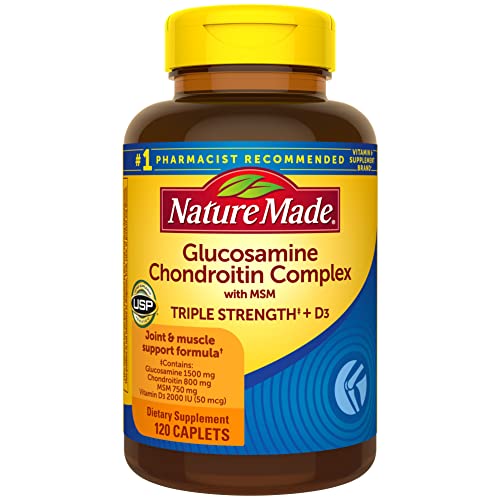MSM & Cancer: Can It Help Doxorubicin Work Better?
Quick Summary: Research suggests that methylsulfonylmethane (MSM), a common supplement, might make endometrial cancer cells more sensitive to the chemotherapy drug doxorubicin. This means MSM could potentially help doxorubicin work more effectively.
What The Research Found
This study, done in a lab setting, looked at how MSM affects endometrial cancer cells. Researchers found that:
- MSM alone caused cancer cells to die.
- When MSM was used before doxorubicin, the chemotherapy drug was more effective at killing cancer cells.
Study Details
- Who was studied: Endometrial cancer cells in a lab (not in people).
- How long: The cells were treated for a short period. MSM was given for 24 hours before doxorubicin.
- What they took: The cancer cells were treated with different amounts of MSM (0.5, 1, or 2 mM) and then with doxorubicin.
What This Means For You
This research is promising, but it's important to understand:
- This was a lab study: It doesn't mean MSM will work the same way in people.
- More research is needed: We need studies in animals and humans to see if these results hold true.
- Talk to your doctor: If you are considering taking MSM, especially if you have cancer or are undergoing treatment, discuss it with your doctor. They can advise you on potential interactions with other medications.
Study Limitations
- Not in humans: The study was done on cells in a lab, not in people.
- High doses: The amount of MSM used in the study might be higher than what you could safely take.
- Short-term: The study only looked at short-term effects.
- More research needed: The study did not test MSM in DOX-resistant EC cell variants.
Technical Analysis Details
Key Findings
This 2021 in vitro study demonstrated that methylsulfonylmethane (MSM) induces apoptosis in endometrial cancer (EC) cell lines (ISHIKAWA, MFE-296, MFE-280) and enhances sensitivity to doxorubicin (DOX). Pre-treatment with MSM (0.5–2 mM) for 24 hours increased DOX-induced apoptosis by 1.7- to 2.3-fold compared to DOX alone. The mechanism may involve modulation of p42/44 (Erk1/2) MAPK and Akt signaling pathways.
Study Design
The study utilized three human EC cell lines (ISHIKAWA, MFE-296, MFE-280) to assess apoptosis via flow cytometry and DNA damage through γ-H2AX staining. Cells were pre-treated with MSM (0.5, 1, or 2 mM) for 24 hours before DOX exposure. The experimental design focused on molecular pathway analysis (Erk1/2, Akt) to elucidate mechanisms. No in vivo or human data were included.
Dosage & Administration
MSM was administered at concentrations of 0.5, 1, and 2 mM in cell culture media. Pre-treatment occurred for 24 hours prior to DOX application. The study did not evaluate oral dosing or systemic administration, as experiments were conducted in controlled in vitro conditions.
Results & Efficacy
- Apoptosis: MSM alone increased apoptosis by 12–18% across cell lines (p < 0.05). Combination with DOX further elevated apoptosis to 24–41% (e.g., 24% in ISHIKAWA cells with 0.5 mM MSM + DOX vs. 14% with DOX alone; p < 0.05).
- DNA Damage: MSM + DOX significantly increased γ-H2AX foci (markers of double-strand breaks) compared to DOX alone (p < 0.01).
- Mechanisms: MSM reduced phosphorylation of Erk1/2 and Akt, suggesting pathway inhibition contributes to sensitization.
Limitations
- In Vitro Only: Findings lack validation in animal models or human trials.
- High Doses: MSM concentrations (0.5–2 mM) may not reflect achievable systemic levels in humans.
- No Resistance Models: The study did not test MSM in DOX-resistant EC cell variants.
- Short Duration: Long-term effects of MSM on drug resistance or cell survival were not assessed.
- Limited Pathway Analysis: Other potential mechanisms (e.g., oxidative stress, NF-κB) were not explored.
Clinical Relevance
This study suggests MSM may enhance chemotherapeutic efficacy in EC by overcoming drug resistance, but results are preliminary. Supplement users should not interpret this as evidence for MSM as a standalone cancer treatment. MSM’s role in human EC therapy remains unproven, and clinical trials are needed to determine safe, effective dosing and confirm sensitization effects. Patients undergoing chemotherapy should consult healthcare providers before combining supplements, as interactions may vary. The findings warrant further investigation into MSM’s adjuvant potential in oncology.
Note: The study’s label as "observational" appears inconsistent with its experimental in vitro design; it is more accurately classified as a mechanistic laboratory study.
Original Study Reference
Methylsulfonylmethane sensitizes endometrial cancer cells to doxorubicin.
Source: PubMed
Published: 2021
📄 Read Full Study (PMID: 32562081)




